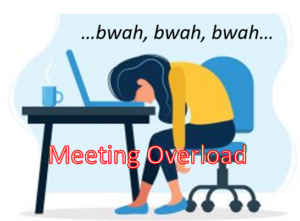 My Inbox blew up with Teams/Zoom meeting policy questions during the 2020 Pandemic exodus. Clients old and new wanted to enable remote business continuity while managing the potential risk they perceived in meeting recordings and transcripts. Frankly, most of my global corporate clients blocked recordings and are just now re-evaluating that decision as employees struggle with meeting overload.
My Inbox blew up with Teams/Zoom meeting policy questions during the 2020 Pandemic exodus. Clients old and new wanted to enable remote business continuity while managing the potential risk they perceived in meeting recordings and transcripts. Frankly, most of my global corporate clients blocked recordings and are just now re-evaluating that decision as employees struggle with meeting overload.
#Microsoft moved quickly to shift the burden of storing 400+ MB meeting MP4 files from Streams to the host user OneDrive. They recent changed the default retention to 60 days. The transcripts are disabled by default and have to be manually downloaded from Teams for users to build a transcript repository.
Meetings are where consensus decisions are made or communicated. The record of those decisions, the participants and information context are valuable digital evidence and information assets. How much of eDiscovery is reconstructing the decision storyline?
Many politicians, executives and attorneys seem to prefer ‘keep nothing’ policy to mitigate the fallout from poor decisions or bad actors. Managers, paralegals and digital professionals defensively hoard confirmation emails, meeting notes and similar decision records that demonstrate their directive compliance and diligence. So where is the healthy balancing point?
A lifetime of investigations and eDiscovery trained me to minimize full recordings or transcripts in favor of work-product protected notes. After two years of client Teams/Zoom meetings and supporting a tech startup that recorded EVERYTHING, I have come to see the value of the full decision record.
Having the full transcript enables me to stay engaged during the meeting instead of constantly trying to create detailed notes. I currently have to use external tools to generate my meeting tasks and summary, but Microsoft partners are working hard to build Teams apps to make meetings more meaningful and efficient.
Does that mean I recommend that clients let users create and keep recordings and transcripts? Not without policies, training and controls to minimize the potential storage and compliance impact. I do believe that there are workflows that maximize the value of meetings while minimizing the downstream discovery risks.
We are all having to grapple with how we stay connected and make work meaningful in the Great Reshuffle. Management needs to embrace new practices and tools that ease this transition. eDiscovery professionals should not reject new, challenging ESI sources without considering the business and employee value they provide. Do you ban meeting recordings? Or have you found a retention/compliance solution that works? Either way, I want to hear about how you manage meeting records.
Greg Buckles wants your feedback, questions or project inquiries at Greg@eDJGroupInc.com. Contact him directly for a free 15 minute ‘Good Karma’ call. He solves problems and creates eDiscovery solutions for enterprise and law firm clients.
Greg’s blog perspectives are personal opinions and should not be interpreted as a professional judgment or advice. Greg is no longer a journalist and all perspectives are based on best public information. Blog content is neither approved nor reviewed by any providers prior to being published. Do you want to share your own perspective? Greg is looking for practical, professional informative perspectives free of marketing fluff, hidden agendas or personal/product bias. Outside blogs will clearly indicate the author, company and any relevant affiliations.
See Greg’s latest pic on Instagram.

Interesting perspective. If by “compliance risk,” you mean non-coercive, informed consent before recording, that is an important step. If not, IMHO, risk number one is the privacy risk, especially where remote workers are connecting from multiple jurisdictions. Some states require consent from everyone in the meeting before audio recording. Some also require similar consent before recording video. Last, in a few states A/V recording without consent may be a crime. These issues have been a headache for my clients since the launch of WebEx. Then of course is the privacy risk embedded in the content share with providers who may… Read more »
Teams and Zoom have a required recording notification/consent to all meeting participants. While I would love to be able to tweak the language, it does check the privacy consent/notification box. However, as a consultant I was in the Just Say No camp due to many factors and unanswered questions prior to the pandemic pause. The transformation of remote/hybrid working environments since then has changed my perspective on the format, workflow and value of meeting records. I still do not think that MSFT or Google have all the controls, features and usability needed to support a real ‘well formed meeting’ on… Read more »